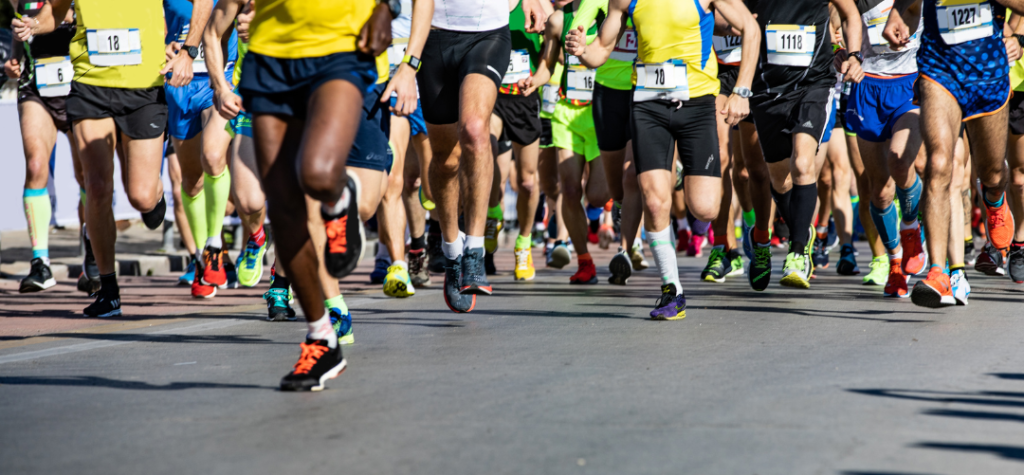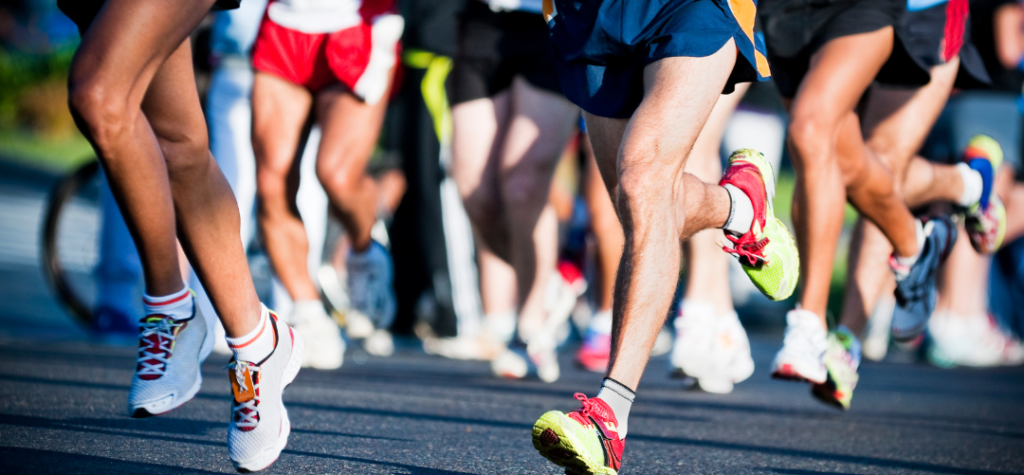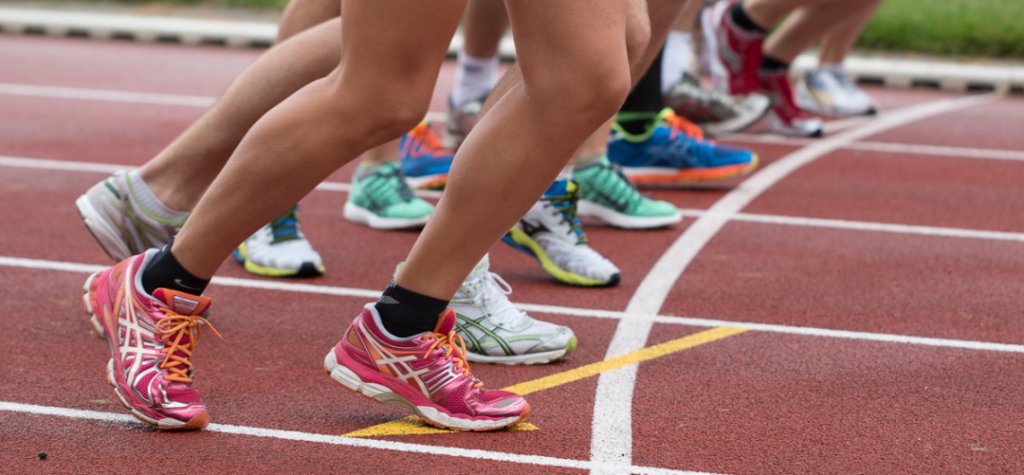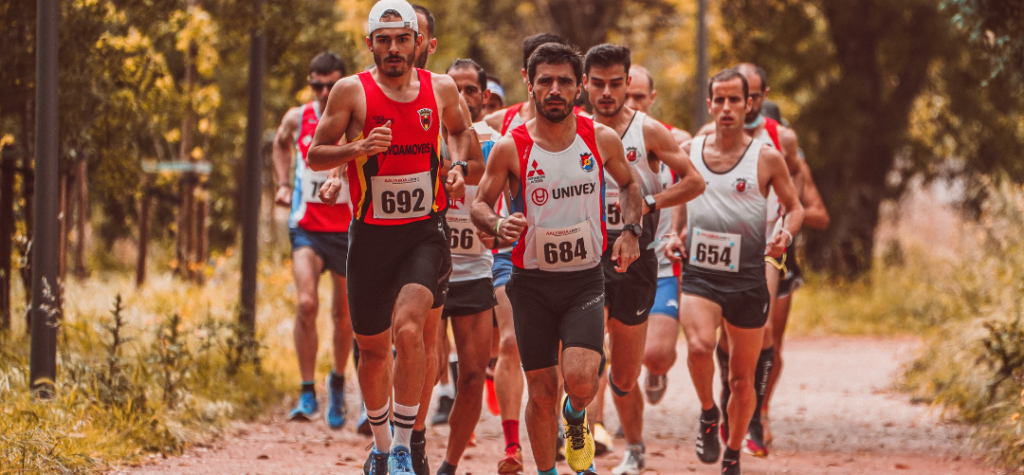What Is A Good 10k Time For Beginners To Advanced Runners? – Average 10k Time – 10K In Miles
To run is to move at speed quicker than a walk, never simultaneously having both or all of the feet on the ground. You can presumably already do that, essentially with enough expertise to get around a baseball field or discover a baby running toward an unguarded flight of stairs.
What you will most likely be unable to do now, nonetheless, is run a sufficiently long distance or often enough for you’re enjoying yourself. Anybody can be a runner. You are a runner whether you run gradually, rapidly, or just on bright Wednesdays.
There are many motivations to begin running. Since you are perusing this article, you most likely have several reasons. First, running is moderately simple to get into-it requires little ability and unique hardware.
Running is an extraordinary method for expanding cardiovascular wellness and bone thickness and can ease pressure.
It consumes calories, assists you with shedding pounds, and can run pretty much any place, whether at home or away on movements. This moment is the ideal opportunity to begin if you’re not into a standard running daily schedule and need to be.
You’re probably back to a daily practice after the late spring, and the excellent fall weather conditions are more helpful for running for too long outside.
Good 10K Race Times

Your 10km time will rely upon many variables: these incorporate age, sex, weight, past preparation, and wellness level. No two runners share similar attributes or do a similar practice; in this manner, their 10k in miles times will presumably shift.
Relaxed runners finish a 10km race in 50 to 70 minutes. The middle time it takes an individual to run a 10k is somewhere between 56 and 64 minutes. An energetic runner with great well-being could complete a 10k in around 43 to 50 minutes.
Age is a significant figure in your 10km to miles time. A few age-evaluated number crunchers online can gauge the typical quickest time for people your age. These mini-computers are a simple and robust method for deciding a decent 10k time per your age.
Ten kilometers rise to 6.2 miles, and thoroughly prepared runners can accomplish a speed of roughly seven minutes for each mile. Be that as it may, average or relaxed runners will likely require 10 to 14 minutes for every mile.
Different variables, for example, the territory where the race is occurring, the height, well-being, and planning, can all influence your running times.
Common 10k Running Times
People will have incomprehensibly different 10k times relying upon actual wellness, age, rise profile of the course, etc. Yet, here are a few expansive thoughts:
Average 10k time
The middle time for a man to finish a 10k is around 01:05:30. Which is about a 10:53-mile pace. The typical lady takes longer: 01:13:58 is the intermediate time or a 11:57-mile speed.
However, many people who run routinely aren’t insufficient to the bone and can hope to complete a 10k somewhere close to 70 and 80 minutes. That reach covers paces from an 11-minute-mile speed to an 12-mile rate.
10k Time For Elite Runners
The quickest runners can finish a 10k between 30-40 minutes, which works from a 4:50-minute-mile speed to a 6:30-minute-mile pace. Currently, men’s fastest 10k street race time is 26:24. The ladies’ reality mark is 29:43.
Average 10k Time For Beginners
Contingent upon the amount you have been preparing, you ought to go for the gold time for your orientation. That truly intends that assuming you’re a man and this is your first 10km, go for the gold 65 minutes.
Preparation has been going exceptionally well; you could mean getting under 55 minutes if you’re a novice for an even time frame.
If you’re a female, go for close to 64 minutes; on the other hand, if you’re feeling gung-ho, pursue under 63 minutes.
You can likewise utilize a race time indicator number cruncher like the one on Runner’s Reality. It will provide you with a smart thought of what time to anticipate. If you have a GPS watch you’ve been utilizing for preparing, it could let you know an expected completion time.
Related: How Long Does It Take You To Run A 5K?
Advanced And Elites Athletes
What Is An Excellent Time For A 10km To Miles Fledgling?

The typical mile time for men running a 10K is a little under 9 minutes, while it is something like 10 minutes for ladies. So a mile might take fledglings 12 to 15 minutes to finish.
Walkers who complete a mile each 15 to 20 minutes might do a 10K in an hour and a half to 2 hours. Quicker runners can do a 10K in under 80 minutes.
The all-out distance canvassed in running a 10K is around 26 miles, with a most extreme height gain of about 1000 feet. For every moment of running, expects about 100 breaths. Thus, an individual should inhale multiple times in a 10K race.
Most excellent pulse Pulses above 180-190 for men and 150-160 for ladies imply that the body is burdened by working out. For a typical man, this level is reached toward the finish of the main mile. For a specific lady, it is called toward the finish of the next mile.
Shortness of breath while walking up a slope or ascending from a seat is primarily because of the overabundance of lung air. It can be eliminated by taking a full breath or breathing out leisurely.
However, in serious windedness, people need to stop what they are doing and look for clinical assistance immediately.
What Is A 10k Average Finish Time For A Lady?
30 to 33 minutes, as a rule, would put you among the best runners for ladies. For men, that midpoint is around 13 to 13.30 minutes, and for ladies, 14.45 to 15.30 minutes. Of course, a few super quick women can run under 5 minutes for every mile, except they are intriguing.
A lady’s average 10k finish time is usually around 62 minutes and 40 seconds. This is based on an average pace of 6 minutes and 4 seconds per kilometer.
However, this will vary depending on many variables such as the lady’s level of fitness and how fast she is able to run a 10k race.
Your age, wellness level, and kind of activity you intend to do — the rundown goes on. In any case, with some straightforward math and science-based questions, you can figure out how long it requires to run 10 kilometers.
What’s more, from that point, you can sort out how quickly you ought to arrive at your objective time.
We should begin by taking a gander at what amount of time it requires for people of various ages to walk or run 10 kilometers. Then, at that point, we’ll continue to examine the impacts of wellness on walking speed. Then, at last, we’ll discuss how to quantify your running speed.
Tips To Run A 10k Race
It’s the prior week’s race day, and you’ve gone through numerous weeks preparing. What do you do now? Please sit back and relax; as somebody who has been there, I have a few hints for you.
Before the Race
The night before your race, eat something that will sit well the following morning. Stay away from zesty or oily food varieties! I like to eat salmon with quinoa and vegetables like zucchini or green beans the night before my races.
Get a lot of rest and get to the race early. You would rather not be fretted over the chance of showing up later than expected. Furthermore, ensure that you’ve utilized the restroom. That is the last thing you need to manage during the race.
Ensure that you’re arranged the previous night. Put your chin-wiper on your shirt early. Set out your running shoes, stuff, and whatever else you could require.
Ensure you get in a fast breakfast on the morning of your race. Try not to go overboard. However, something like a banana and a portion of a bowl of oats ought to be great. Next, you should bounce in the shower and scrub to get your body heated.
When you get to the race, ensure you carve out an opportunity to heat up. Do dynamic stretches and go for a lively stroll/run around 15 minutes before the competition to warm your advantages.
Tips For Runners

Strength Train
Running is a drawn-out series of single-legged forward jumps. The more grounded your glutes and leg muscles are, the quicker you can run and the more you can support that quick speed.
Your center and chest area strength additionally matter since your center gives soundness and your chest area adds to the excellent running pace structure.
At last, runners who train routinely are less inclined to get harmed since strength preparation fixes solid irregular characteristics and makes muscles more impervious to the dreary beating of running.
Whether running a 40-moment or 80-minute 10K, legitimate pacing is vital to running your best 10K. Beginning too quickly can crash your objectives and set you up for a hopeless race.
A race procedure holds you back from becoming involved with the enthusiasm of the race. You can follow a race procedure no matter what your objectives and experience.
Mean to run the primary mile at a controlled exertion, the center 4 miles at a consistent and hard work, and the last mile and two-tenths as hard as possible.
If you are attempting to hit a specific speed, run your objective rate to 10 seconds slower for the main mile, at your accurate speed for the center 4 miles, then and as hard as possible to the end goal.
If you are running the 10K to finish it, you can do dynamic stretches, for example, leg swings and arm swings, to heat up. If you are dashing for a period objective, deal with the race like a strenuous exercise and allow yourself to heat up before the race.
You need to be prepared to sprint! Run at an extremely simple exertion for 1-2 miles and complete your ordinary drills and dynamic stretches.
Make Your Preparation Arrangement
A few free preparation plans accessible online can assist you with preparing for your 10K in miles objective. Your work and life timetable will be the greatest tyrants of how long you devote to preparing, and not all preparing plans might work for you.
However long you are getting in your long run every week, which will go from 2 to upwards of 8 miles, you can single out different exercises you believe you should do from any of the accessible preparation plans given the seven days of preparation that you are in.
So, for instance, if you are in the second seven-day stretch of preparing, you should wait to decide to do an exercise from week five of any of the plans.
Ascertain Your Speed
You can rehash your enchanted mile test like clockwork and change the speed of your preparation runs appropriately. As indicated by a proficient runner and coach, Jeff Galloway, you can gauge your 10km time by duplicating your magical mile time by 1.15.
A ten-minute mile pace is a sensible objective if you are a starting runner and you’ve been preparing for some time.
If you can run a mile shortly, you might have the option to finish your 10KM at an 11:30-mile pace. Going on like this, you ought to have the chance to finish your 10K in about an hour and 11 minutes.
Contemplations
Rotating walking and running during your preparation runs will assist you with recuperating quicker without influencing your perseverance gains.
Indeed, even proficient runners go for stroll breaks during preparing for runs and races, so you can feel sure that you’re getting the advantages of preparing while at the same time diminishing your gamble of wearing out.
Take up broadly educating on non-run days to work on your solidarity and adaptability, which will assist with holding you back from getting harmed during preparation and race day.
In addition, broadly educating offers your running muscles a reprieve while helping you accomplish superior speed and, generally speaking, wellness over the long haul.
Progressed middle-of-the-road runners hoping to leap to a higher level should probably be doing strength preparation. Medication and Science in Sports and Exercise show that explicit strength preparation can work on running execution.
It doesn’t mean going to the gym to beef up. However, body weight and practical preparation are adequate.
Transitional runners may be enticed to hold back on recovery to get into another hard instructional meeting. So it is which isolates middle runners from opening high-level running execution. Advanced runners know the ideal time to relax and put their feet on the sofa for a midday rest.
What Impacts How Fast You Can Run A 10K?
A few things can impact how fast you can run a 10k. If you are in good shape and have been training regularly, you will likely be able to run the 10k quite fast.
However, if you are not in good condition or have not been training, you may find it more challenging to run the 10k quickly.
Additionally, the terrain of the race can impact your speed – if it is hilly or has a lot of turns, it will be more challenging to run quickly than if it is flat and straight.
Finally, the weather on race day can also impact your speed – if it is hot or humid, it will be more difficult to run quicker than if it is cool and dry.
What Are Average 10K Times Based On Age And Gender?

There is no definitive answer to this question as people of different ages and genders will have different average 10k times.
However, according to a recent study, the average 10k time for men aged 20-29 was 29:14, while the average 10k time for women aged 20-29 was 33:18. This suggests that, on average, men are faster than women when it comes to running a 10k race.
The data reveals a strong relationship between 10k time across all age group and the typical time for completing a 10k, with older age groups generally having slower average running speeds.
| Age | Beginner | Novice | Intermediate | Advance | Elite |
| 10 – 14 | 01:18:09 | 01:05:13 | 55:45 | 48:48 | 43:43 |
| 15 – 19 | 01:07:39 | 56:28 | 48:15 | 42:15 | 37:51 |
| 20 – 24 | 01:05:30 | 54:39 | 46:43 | 40:54 | 36:38 |
| 25 – 29 | 01:05:30 | 54:39 | 46:43 | 40:54 | 36:38 |
| 30 – 34 | 01:05:30 | 54:39 | 46:43 | 40:54 | 36:38 |
| 35 – 39 | 01:06:06 | 55:09 | 47:09 | 41:16 | 36:58 |
| 40 – 44 | 01:07:58 | 56:43 | 48:29 | 42:26 | 38:01 |
| 45 – 50 | 01:10:43 | 59:01 | 50:26 | 44:10 | 39:33 |
| 50 – 54 | 01:13:42 | 01:01:30 | 52:34 | 46:01 | 41:14 |
| 55 – 59 | 01:16:57 | 01:04:13 | 54:53 | 48:03 | 43:03 |
| 60 – 64 | 01:20:30 | 01:07:11 | 57:25 | 50:16 | 45:02 |
| 65 – 69 | 01:24:23 | 01:10:25 | 01:00:11 | 52:42 | 47:12 |
| 70 – 74 | 01:28:40 | 01:14:00 | 01:03:15 | 55:22 | 49:36 |
| 75 – 99 | 01:34:32 | 01:18:53 | 01:07:26 | 59:02 | 52:53 |
How Long Should I Train For A 10K Race?
Depending on your current level of fitness, how much running longer distances you have done in the past, and other factors, you may need to train for anywhere from several weeks to several months to complete a 10k race.
A good rule of thumb is to allow at least 8-12 weeks of training before the race, aiming for at least 30 minutes of running (or other aerobic exercises) most days of the week, with some longer runs on the weekends.
If you can commit to this type of training schedule, it will give you enough time to gradually build up your mileage and be able to complete a long run of 10 kilometers before race day.
Should I Run A 10K Before My 10K Race?
There is no definitive answer to this question, as it depends on each individual’s level of fitness and training.
However, some experts suggest that running a 10k race before your actual 10k race can help you better gauge your pace and ensure you don’t start out too fast.
Additionally, completing a practice run can help boost your confidence on race day. Ultimately, the decision of whether or not to run a 10k before your actual 10k race is up to you and should be based on your own fitness level and training for a long time.
What Are The Benefits Of Running A 10K?

The benefits of running a 10k are many and varied. And:
- It is an excellent way to improve your cardiovascular health. Running a 10k can help to improve your muscle strength and endurance.
- It can help you to lose weight and tone your body.
- It can help you to improve your mental health and well-being.
How Many Miles Is A 10K?
Many casual runners will be familiar with the 10k, the 10,000m, or 6.2 miles long-distance race. However, a typical 400-meter oval is used for the 25-laps competitors’ race on the Olympic-size track.
As a result, athletes cluster together when starting from a standing position and are susceptible to internal breaking.
The distance of a 10k equals 32,808 feet, 5 inches, or 6 miles, 376 yards.
The 10k is the longest conventional track distance and is frequently competed in cross-country and road competitions, and also a standard distance for race walkers.
What Is The World Record 10K Time?
Joshua Cheptegei of Uganda established the world record for a 10k time for males on October 7, 2020, clocking in at 26:11:00! The mile time is 4:12!
Letesenbet Gidey of Ethiopia established the fastest female 10k time in the world on June 8, 2021, clocking in at 29:01:03. That’s a mile in 4:40!
How Can I Improve My Average 10K Run Time?
If you’re looking to improve your average 10K run time, you can do a few things. First, make sure you’re training regularly and consistently.
It means running at least 3-4 times per week and including some speed work and hill repeats in your training. Second, focus on your nutrition and make sure you’re eating enough calories and getting the right mix of nutrients to support your running.
Finally, pay attention to your recovery and make sure you’re getting enough rest and taking care of your body so you can perform your best on race day.
How Can I Run A Faster Good Time For A 10k? – 3 Ways

There are three primary ways to run a faster 10k: increasing your aerobic capacity, improving your running economy, and increasing your anaerobic threshold.
1- Increasing your aerobic capacity will help you sustain a higher speed level for a more extended period. It can be done by combining long, slow distance, and interval training.
2- Improving your running economy means ensuring you use your energy as efficiently as possible when you run. This can be done by working on your form and technique, as well as increasing your strength and power.
3- Finally, increasing your anaerobic threshold will allow you to push yourself harder for longer without tiring. It can be done through interval training and tempo runs.
How To Prepare For A 10K Run For The First Time
To prepare for your first typical 10k run, you will need to increase your running distance and pace over some time gradually. Start by running 3-4 times per week, with each run being slightly longer and faster than the last.
As you get closer to race day, aim to do a long run of at least 8 miles and a few shorter runs at your goal race pace. Be sure to rest and eat well in the days leading up to the race so that you are feeling fresh and ready to go on race day!
Related: What to Expect at a Naked Yoga Class
10 Tips To Take To Run A 10K
Beginners and experienced runners and training for a 10k race? Here are 10 tips to help you run your best race:
1. Set a goal. Having a time or distance goal to aim for will help keep you motivated during heavier and lighter running sessions.
2. Find a training plan. There are many different plans out there, so find one that fits your schedule and goals, including a mix of running, cross-training, and rest days.
3. Stick to the plan. It can be tempting to skip workouts or take shortcuts, but sticking to the plan will give you the best chance of success on race day.
4. Get enough rest. Rest is just as important as the actual workouts, so make sure to get plenty of sleep and allow your body to recover between workouts.
5. Eat healthily. Fueling your body with healthy food will give you the energy you need to train effectively.
6. Stay hydrated. Drinking plenty of water throughout the day will help you stay hydrated and avoid dehydration during your runs.
7. Be mindful of any injuries or pain you may be experiencing and take care of them accordingly.
8. Dress appropriately for the weather. Wearing the suitable clothing will help you stay comfortable during your runs.
9. Take the time to warm up and cool down properly before and after your runs. Warming up and cooling down properly can help prevent injuries and make your runs more effective.
10. Have fun and enjoy the process to achieve a good 10k running time!

What Is A Good 10k Time For Beginners To Advanced Runners – The Bottom Line
Thus, energizing you’re running your most memorable 10k in miles race. Of course, it’s more extended than a 5k. However, it’s less overpowering than a half-long distance or long-distance race.
In this way, it’s an excellent venturing stone race for continuing toward longer races like 10-milers or half-long distance races.
Ensure that you require some investment to celebrate with companions. Many people have run 5ks, which is an incredible achievement.
However, fewer people have run 10ks or longer races, so it merits celebrating. Props to you for going with sound choices for your life.
In general, a decent 10K running time relies upon various elements. Your time will further develop with more experience, assuming you have the wellness levels to coordinate.
Many people treat these runs more like a side interest rather than a way of life that standard longer times since they aren’t as dedicated to the preparation as others.
DISCLOSURE
Please Be Aware: Statements in this article is certainly not meant to address, cure, treat or even identify any disease or either been evaluated by the Food and Drug Administration. Instead, it is only for informational reasons that it is composed.
Please, you should see your doctor or a certified medical practitioner for those who have any health problem in any respect before taking any supplement you find here or elsewhere.
 | Fitweightlogy’s content writers’ team constantly contributes to writing high-quality content linked with all the best products associated with weight loss, healthy lifestyle, fitness, tips, and motivation. Furthermore, provide tips on beauty and nutrition |
Latest Posts
- What to Eat at KFC: Healthy Menu Choices and Nutrition Facts
- 18 Best Essential Oils For Neck And Back Pain Relief – The Highly Effective Guide
- Health Benefits of Fenugreek Oil for Hair, Digestion, Inflammation & More
- What Is Meringue Powder? – What About Meringue Powder Substitutes?
- What Does A 6 Foot 300 Pound Man Look Like?
- The 15 Best Premium Shampoos for Men In 2022, According To Experts
- 15 Best Premium Shampoos For Women In 2022, According To Experts
Posted in
Welcome to Fitweightlogy! We are an optimum review website of all the best products associated with weight loss, healthy life, fitness, tips, and motivations. We are a quickly developing organisation given that we typically put our visitors first. A customer-focused experience has regularly been our objective, and we value our comprehensive policies, which have placed us in a domain well beyond our competitors. On this website, we assist our visitors in reaching their desired weight, appearance goals and live a healthy lifestyle, as well as save money and time by meticulously researching and evaluating the market, assessing the available products, and producing informative recommendations based on factors such as quality, availability, price and more. Furthermore, our passion is to assist you in choosing the best possible product through our product reviews.









Hello my family member! I wish to say that this post is awesome, great written and include approximately all vital infos. I¦d like to see more posts like this .
Hello, we are glad that the post was helpful. Thank you for visiting out website.